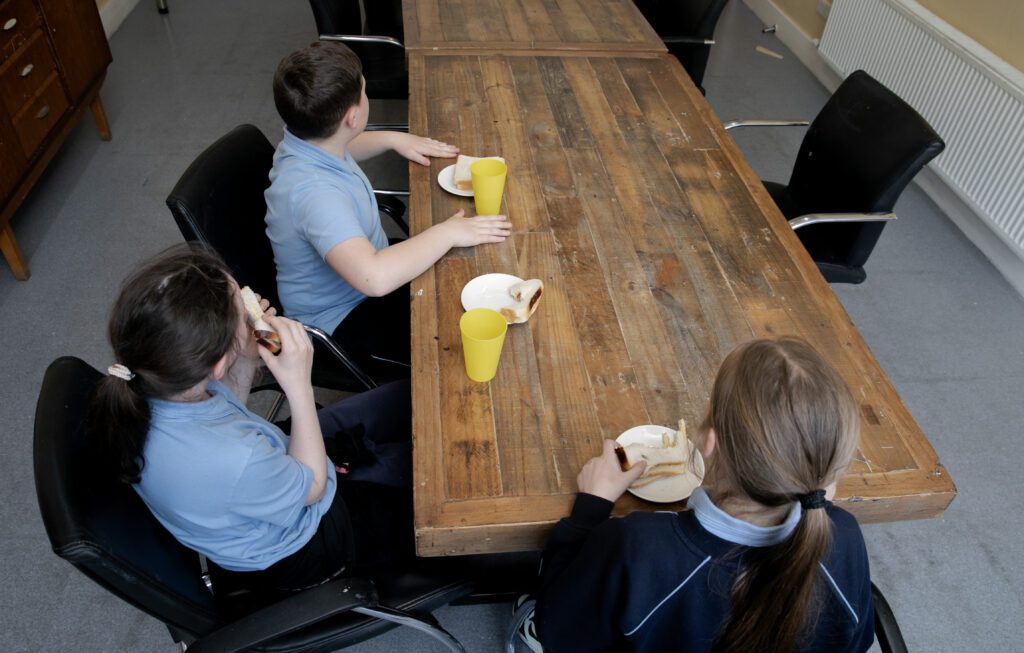
Material deprivation – the share of individuals in households unable to afford two or more items from a list of ten essentials – rose from 17.7% in 2022 to 20.1% in 2023 for those aged under 18.
This means 230,000 children are currently estimated to experience material deprivation: an increase of almost 30,000 since 2022. The rise comes amidst a 3% real (inflation-adjusted) decline in the average disposable income of households with children.
In contrast, material deprivation fell over the same period from 11.7% to 9.8% for those aged 65+. This group also saw their average real disposable incomes rise by 3%, boosted by a rise in income from work and higher employment rates.
These are among the key findings of new ESRI research published today in partnership with Community Foundation Ireland, using the latest data from the CSO’s Survey of Incomes and Living Conditions (SILC).
Other key findings include:
After a decade of uninterrupted growth, inflation has left average disposable income lower than it was two years earlier across the population as a whole.
Post-tax and transfer incomes adjusted (equivalised) for household size have fallen in real terms at both the mean and median: by 2.2% and 5.4% respectively between 2021 and 2022, leaving average household disposable income lower than it was in 2020.
Those aged 65+ are a notable exception to this decline in average disposable incomes. While average post-tax and transfer incomes fell in real terms by around 3% for those aged under 65, they grew by 3% for those aged 65+.
Adjusted for both household size and housing costs, average disposable incomes are now higher for those aged above than below 65.
When housing costs are accounted for, rates of child poverty have increased in recent years. Although rates of child poverty have fallen slightly on a before housing costs basis, they have increased from 20% in 2020 to 22% in 2023 on an after housing costs basis.
Those experiencing low income or material deprivation are less engaged in civic participation. They are less likely to have been involved in formal and informal volunteering or to have taken part in any political activity in the last 12 months.
Those who are materially deprived have significantly fewer social contacts than other adults and significantly lower levels of life satisfaction.
The pandemic has had a damaging effect on life satisfaction, civic participation and social contact. By 2023 life satisfaction had still not recovered to pre-pandemic levels recorded in 2018. Civic participation in 2022 was half the level in 2015. Social contact was also reduced but not to the same degree.
Dr Barra Roantree, Director of the joint ESRI-TCD MSc in Economic Policy at Trinity College Dublin and a co-author of the report said:
“The findings in this report suggest additional policy measures – such as a second tier of child benefit targeted at low-income families – may need to be considered if Government commitments to reduce rates of child poverty and material deprivation are to be achieved.”
Dr Helen Russell, a Research Professor at the ESRI and co-author of the report said:
“Poverty has a depressing effect on both social and civic participation. If individuals feel excluded from society and that their voices are not heard this undermines social trust and cohesion. It is important that the social infrastructure of disadvantaged communities is supported, for example through community development programmes and investment in civic amenities that promote social contact.”
Denise Charlton, Chief Executive of Community Foundation Ireland who supported the research added:
“Community Foundation Ireland has a network of 5,000 voluntary, community and charitable partners. The challenges identified in this research reflects the reality many face on the ground every day, and highlights the importance of policy decisions which promote inclusion and equality for all.”
Your Copy of Poverty, Income Inequality and Living Standards Research.